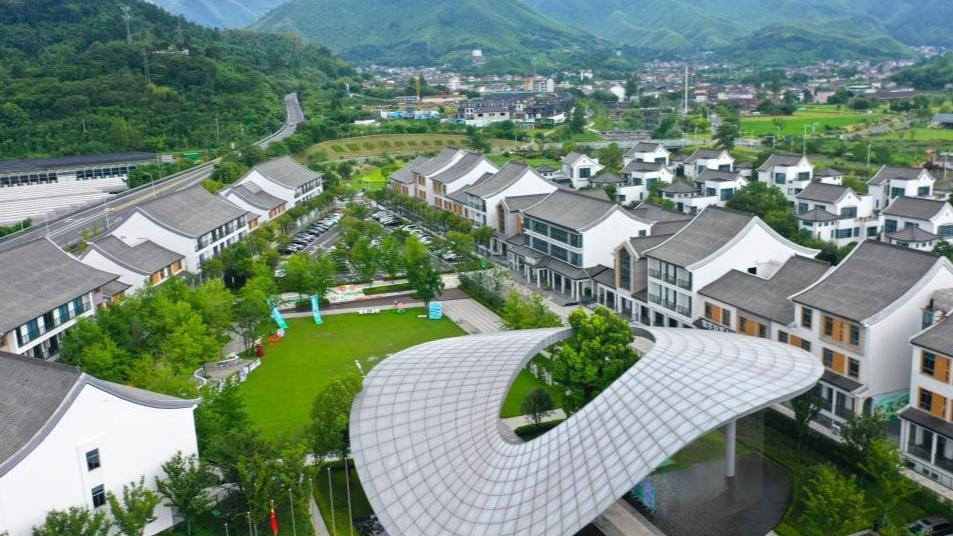HARARE, Aug. 19 (Xinhua) -- China's success in rural revitalization can serve as an inspiration for Zimbabwe's development path, a Zimbabwean scholar said on Tuesday.
Achieford Mhondera, a lecturer at the University of Zimbabwe, made the remarks in an interview with Xinhua on the sidelines of the second edition of the Harare Forum for Africa (HFA) held in Harare, the southern African country's capital.
Rural development is crucial to Zimbabwe's economic transformation, as the majority of its population resides in rural areas, Mhondera said, noting that China went through a similar stage of development many years ago.
Given that both countries are developing economies in the Global South, Zimbabwe can learn from the practical measures China has adopted in advancing rural development, Mhondera added.
He said China's "two mountains" concept, which holds that "lucid waters and lush mountains are invaluable assets," can provide inspiration for sustainable and ecological rural development in Zimbabwe.
"You need a conducive and safe environment for development, and these are some of the things we need to learn from China's experience. If you go to the Chinese countryside, you will find lucid waters and lush mountains -- often described as mountains of gold and silver -- which can be adopted and adapted in Zimbabwe's case," Mhondera said.
Drawing on China's rural revitalization efforts, particularly in modernizing agriculture and improving rural living standards, Mhondera noted that a conducive ecological environment is vital for promoting rural development.
"In terms of rural development and modernization, I think the first step in the modernization process is to build a good countryside -- a beautiful, ecologically sustainable countryside," he said.
He observed that rural development in China is driven by a combination of government intervention and active participation of local communities.
Mhondera stressed that cooperation with China has played a crucial role in advancing rural development in Zimbabwe. "Cooperation is already underway, and there are more activities in progress," he said.
He further noted that Zimbabwe and China can deepen collaboration in developing irrigation facilities, as Zimbabwe still largely relies on rain-fed agriculture, which is highly vulnerable to climate change.
"China is helping Zimbabwe by developing the countryside, installing solar-powered irrigation systems, and sharing expert knowledge in horticulture and other agricultural practices. I think there is a need to further strengthen this cooperation and expand the model to other areas," he added.
Co-organized by the School of Journalism and Communication at Tsinghua University, the Academy of Contemporary China and World Studies, and the China Zimbabwe Exchange Center, this year's HFA ran under the theme of Rural Development and Modernization, bringing together academics, business leaders, and government representatives to share their views on Africa's rural development.




 A single purchase
A single purchase









